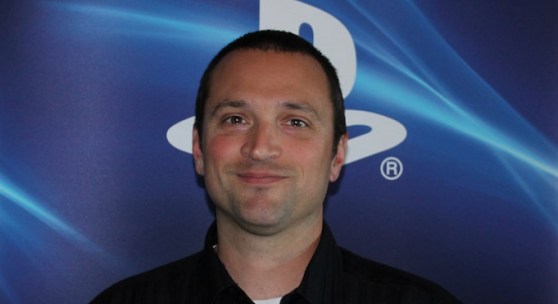LOS ANGELES — So far, so good. Scott Rohde’s job with Sony’s game division in The U.S. is to make sure that Sony stays ahead in terms of the numbers and nature of exclusives for the PlayStation 4 video game console. At the company’s press conference at the Electronic Entertainment Expo (E3), Sony got plenty of validation for its strategy. And he showed off some cool games that are coming in the fall.
I caught up with Rohde, the head of Sony’s Worldwide Studios America, to talk about Sony’s PlayStation 4 line-up, the Project Morpheus virtual reality goggles, and the need to build new intellectual properties for video games.
Here’s an edited transcript of our interview.
GamesBeat: What did you think of the battle of the press conferences?
Scott Rohde: As usual, I thought everyone had some great things to show. I was very happy with what we showed. We had a nice mix of great new game content — that’s always going to be the focus – but we also showed that, because we’re Sony, we’re a global hardware company. We showed some hardware innovation as well in PS Now, PS TV, and Morpheus.
GamesBeat: Do you think of PS Now has a hardware project as well as software initiative?
Rohde: Maybe it’s a technology innovation, more than just hardware? That’s what you can call it.
GamesBeat: It’s good to see it on schedule.
Rohde: Yeah, July 31.
GamesBeat: How would you describe that project? Did it go as expected? Was it just a lot of hard engineering work that had to be done?
Rohde: For a full answer to that, you’re better off talking to Gaikai directly. From my perspective, I’ve seen some very skeptical development groups say, “Can you integrate God of War Ascension and get it working in the closed beta?” That process was very smooth, very short, and the skeptical dev community was surprised by how great the end result was. They said, “Wow, there’s my game on PS Now.” It’s working well.
GamesBeat: I noticed that with PS Now and these other things on PSN, you’re starting to get creative with different models. You’re giving some things away and charging for others, like with Far Cry 4.


